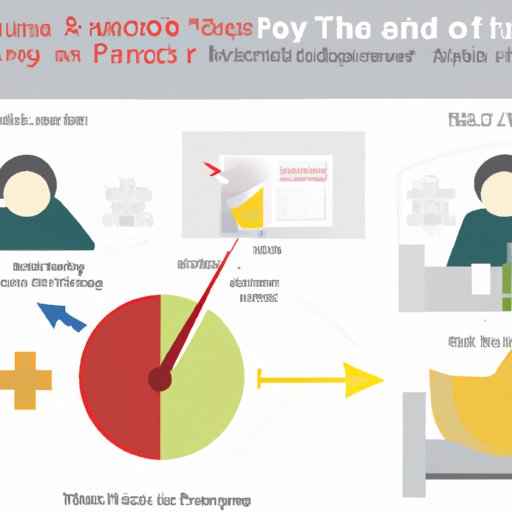
Introduction
The flu is a common viral infection that affects millions of adults every year. It can cause a range of symptoms, including fever, cough, and body aches, and can make it difficult to carry out daily activities. In this article, we will explore the duration of flu symptoms in adults and provide guidance on how to manage them.

Understanding the Duration of Flu Symptoms in Adults
Influenza, commonly referred to as the flu, is a viral infection that spreads from person to person through respiratory droplets when an infected person talks, coughs or sneezes. It can affect people of all ages, but older adults and those with underlying health conditions are more susceptible to developing complications.
It is essential to understand the difference between the flu and other common illnesses because it can be challenging to distinguish them based on symptoms alone. The flu shares symptoms with other viral infections, such as the common cold and COVID-19, such as fever, cough, and body aches.
The flu can be broken down into three stages: the incubation period, symptomatic period, and recovery period. The length of each stage can vary from person to person.
A Timeline of Flu Symptoms in Adults and Tips for Managing Them
The most common symptoms of the flu include fever, cough, body aches, headache, fatigue, and sore throat. They tend to appear one to four days after exposure to the virus and can last for up to two weeks.
To manage flu symptoms, it is vital to get plenty of rest, stay hydrated, and take over-the-counter medication as needed. Home remedies such as drinking warm fluids, gargling salt water, and using a humidifier may also provide relief from symptoms.
How Long Do Typical Flu Symptoms Last in Adults? Everything You Need to Know
The duration of flu symptoms in adults can vary from a few days to several weeks, with the average duration being around five to seven days. Factors such as age, overall health, and the severity of the flu can impact how long symptoms last.
Older adults, young children, pregnant women, and those with underlying health conditions, like asthma, diabetes, or heart disease, are at a higher risk of developing complications from the flu and experiencing more prolonged symptoms.
Getting Through the Flu: A Practical Approach to Managing Symptoms
Managing flu symptoms can be challenging, but there are practical steps you can take to help make it more manageable. Keeping a symptom journal to track progress, using a humidifier to relieve nasal congestion and avoiding close contact with others to prevent spreading the flu can help make the flu more bearable. Drinking fluids, especially warm ones like broth or tea, can help ease coughing and sore throat symptoms.
The Factors That Influence the Duration of Flu Symptoms in Adults
The length of time flu symptoms last can be impacted by a range of factors, including vaccination status, overall health, and treatment options. Taking steps to protect yourself, such as getting the flu vaccine and practicing good hand hygiene, can also help reduce the likelihood of contracting the flu in the first place. Additionally, a strong immune system can help fight off the virus and lessen the severity and length of flu symptoms in adults.
Beyond the Flu: Recognizing When Lingering Symptoms May Signal Complications
For some adults, flu symptoms can linger even after the virus has left their system. Severe or prolonged symptoms, such as chest pain, shortness of breath, or persistent coughing, can indicate complications, including pneumonia. It is essential to seek medical attention to identify any underlying conditions that may prolong flu symptoms. Anyone who has underlying health conditions or who experiences severe symptoms should contact a healthcare provider.
When to Seek Medical Attention for Flu Symptoms in Adults That Are Lasting Too Long
It is vital to seek medical attention when flu symptoms become severe or persist beyond a week or two. For some adults, antiviral medication can lessen the severity of flu symptoms and prevent complications. Additionally, adults who have underlying health conditions or compromised immune systems are advised to seek medical attention immediately, as they may be at higher risk of complications.
Conclusion
The flu is a common viral infection that can impact daily life and present several challenges to adults. Understanding the symptoms of the flu and how long they can last is essential to managing the disease’s effects. Taking practical steps, such as getting the flu vaccine, practicing good hand hygiene, and staying home when sick, can help prevent the spread of the flu.




